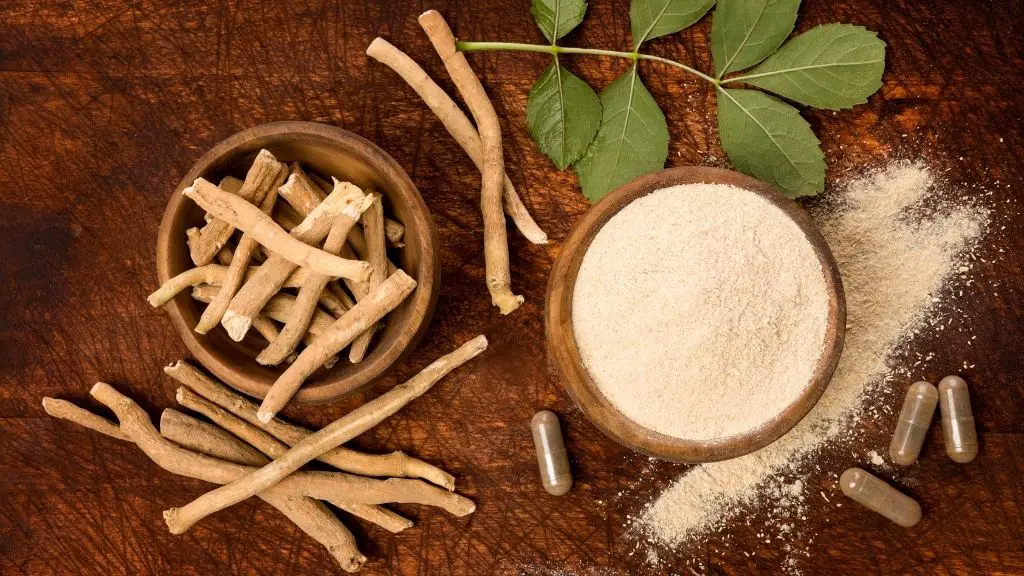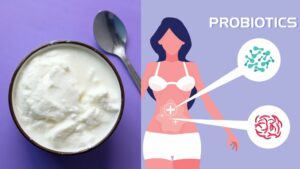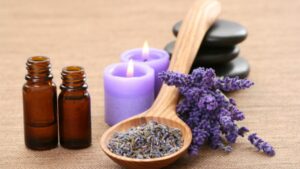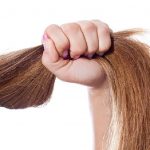7 Best Ashwagandha Benefits for Women

Handling menopause symptoms is one of the various ashwagandha benefits for women. What more does it offer you ask?
Read on to find out!
Women, your bodies require pampering. After everything it does for you, it deserves to be taken care of, and we have just the right herb that can do the job! Ashwagandha is an ancient herb that can offer various health benefits that can improve your overall health.
From vaginal irritation to hair growth, it has you covered. You might want to avoid it while pregnant or lactating, but for the most part ashwagandha benefits for women and ashwagandha for women’s health are taking over the medical world!
What is Ashwagandha?
Ashwagandha, a commonly used name in most Indian households, has a history of being used for various medicinal benefits. Withania somnifera, commonly known as ashwagandha, is an ancient herb grown in some parts of India and North Africa. Also known as “Indian Ginseng” or “Indian Winter Cherry,” this herb has plenty of health benefits it can offer.
Although ashwagandha has been around since the beginning of time, it has started gaining popularity in recent times due to the west adapting to Southeast Asian practices, in this context, medicinal practices. This Ayurvedic herb increases energy, improves overall health, and reduces inflammation, anxiety, and pain. It is also adaptogenic and can help treat neurodegenerative diseases such as Parkinson’s, Huntington’s, and Alzheimer’s. It helps enhance the function of the brain, nervous system, reproductive system and can improve memory [1].
Ashwagandha Benefits for Women
Helps balance hormones
Androgens are hormones responsible for overall growth and the growth of the reproductive organs in both men and women. Although androgens are considered male hormones, the female body also produces a small amount of them [2]. A shortage of androgens in the female body can lead to a condition called androgen deficiency [3].
A few symptoms that come with it are,
- Reduced sex motivation, fantasy, enjoyment, and arousal
- Vaginal vasocongestion
- Reduction of pubic hair
- Reduced bone and muscle mass
- Mood swings
- Insomnia
- Depression
- Headache
After various tests and studies, researchers found that ashwagandha can help stabilize hormone levels in women and offset androgen deficiency. It may also improve sexual function in women [4].
Improves weight management
If there is one benefit of using ashwagandha that is common to everyone, it is fastening weight loss and managing weight gain. This weight gain could be a result of stress, an unhealthy lifestyle, or certain health conditions.
This benefit is mentioned in this article because women who might experience symptoms of Polycystic Ovarian Syndrome or PCOS are prone to weight gain [5]. Hence, they need to watch their stress levels and adapt to a healthy lifestyle. Ashwagandha is an adaptogen that can help maintain your cortisol levels that might trigger an increase in your weight. Therefore, ashwagandha for women’s weight loss can be a reliable option to consider [6].
Reduces female infertility
Infertility affects around 15% of couples globally. 40% of this infertility is due to various female factors. Ovarian diseases, tubal disorders, endometriosis, uterine pathologies, cervical problems, and congenital anomalies are a few of the major causes of female infertility.
Treating infertility is always a process since it is essential to find the root cause, and as discussed, the root cause can vary. Once this is identified, the treatment procedure is put into place. However, it is essential to note that most treatments do not have a 100% efficacy rate. Ashwagandha as a herb has been used as a herbal alternative to treat fertility issues, cure impotence, and increase sex appeal. Although further research is required, there is sufficient evidence to prove the efficacy of ashwagandha benefits for female fertility [7].
Reduces menopausal symptoms
Women go through two significant periods in their lives; menstruation and menopause. Menstruation is when they go through a monthly shedding of the uterine lining. This phase signifies the start of their reproductive age. Menopause, on the other hand, is when women stop menstruating; in a way, you can say that their body is preparing to end its reproductive phase.
Menopause comes with a series of symptoms, most of them unpleasant and uncomfortable.
A few of the symptoms you might want to be on the watch for are:
- Irregular periods
- Vaginal dryness
- Chills
- Night sweats
- Hot flashes
- Weight gain
- Slow metabolism
- Sleep problems
- Fluctuating moods
- Thinning hair
- Drying skin
- Loss in the fullness of your breasts
Various researches were conducted to try and find a natural remedy that could help treat specific symptoms. Through one of these researches, ashwagandha, along with other herbal medications like Ashokarishta and Praval Pishti, proved to be effective in treating mild to moderate symptoms of menopause [8].
Reduces vaginal irritation
Vaginal irritation is often the result of a condition called vaginitis; wherein there is either an inflammation or infection of the vagina. This is usually caused due to a change in the balance of bacteria or yeast found in the vagina.
Other conditions also cause vaginal irritation, but all of them revolve around the unhealthy culture of bacteria or the change in the balance of bacteria and yeast found in the vagina. The most common treatment for such conditions is the consumption of antibiotics.
Ashwagandha is known for its antibacterial properties. Topical application and oral administration of the extract of this herb have shown positive effects against a range of bacteria. This antibacterial property of ashwagandha makes it an apt medication for vaginal irritation [9].
Improves hair growth
Although it is common to assume that men might be the only ones affected by hair loss, it stands to be untrue since around 50% of women experience noticeable hair loss.
One of the most common causes for hair loss in women is Female-Pattern Hair Loss (FPHL); another major reason to consider is stress.
While FPHL is very common and can cause a drastic reduction in hair volume and growth, stress single-handedly can also affect more than just your hair growth and conditions. It is important to take both of these factors and nutrition into consideration while tackling hair loss and poor hair conditions.
Ashwagandha has flavonoids that contain fatty acids, glucose, potassium, tannins, and nitrate. Tyrosine, an amino acid present in ashwagandha, improves melanin production and promotes significant hair growth. It is also an adaptogenic herb that can help keep your stress levels in check and, in turn, help improve your hair growth while directly reducing the hair loss that is caused by stress [1].
Enhances sexual pleasure
Ashwagandha is not just a stress reliever; it is also an aphrodisiac. An aphrodisiac is a substance, extract, or food that can help increase one’s sexual desire, arousal, pleasure, behavior, and performance in bed. This herb has appeared in the ancient text Kama Sutra and has claimed to be an effective aphrodisiac.
Since there isn’t any scientific evidence of this being true, people’s experiences, and texts brought down through history, are our most reliable sources.
However, at the end of the day, your personal experience with ashwagandha for sexual pleasure can vary from that of another; this doesn’t mean that either of your experiences is irrelevant.
Side Effects of Ashwagandha
Ashwagandha in small amounts or doses may not cause any side effects whatsoever. However, due to the lack of long-term studies, there is no proof of any side effects caused due to small or medium doses.
Consuming large amounts of this herb can cause
- Digestive issues
- Nausea
- Vomiting
- Diarrhea
If you are pregnant, avoid consuming ashwagandha since it could cause adverse effects to the developing fetus. Consult a doctor before consuming ashwagandha if you experience conditions like low blood sugar or any other autoimmune diseases [10].
How to Consume Ashwagandha?
The ashwagandha plant in itself is a medicinal herb. However, the roots of this plant are used more commonly for various ailments and conditions. The Ashwagandha root is found in the form of a powder, a supplement, and even as a tincture.
Ashwagandha supplements are taken according to your prescription or like any other supplements or pills. Ashwagandha tincture is often put directly into your mouth, under the tongue. Regardless of the form that you consume this herb in, the benefits it offers always remain the same.
Mentioned below are a few ways to incorporate ashwagandha powder into your day to day life:
- Add the powder to warm milk/water and drink it.
- Make ashwagandha sweet and salty cookies
- Make laddus with powdered ashwagandha and consume it with food.
- Prepare ashwagandha shrikhand to eat as a dessert after dinner.
You could also incorporate this powder into your tea; a method most commonly used is the Kishirpaka, wherein the active principle of the herb is extracted in the milk.
Ashwagandha tea is prepared by boiling the powder in milk and reducing it to half the original quantity. You can then add your choice of sweetener to improve the taste.
The best time to consume ashwagandha would be before you sleep; however, this could vary from person to person and might also depend on the reason for consumption.
Wrapping Up
Ashwagandha is a herb that has made rounds in the medical field due to its various health benefits. It is especially beneficial for women who are undergoing menopause and women of any age in general. Ashwagandha can be consumed in various ways. If you opt to consume it in the form of a powder, you can get quite creative with how you do so. However, regardless of the manner of your consumption, the benefits you receive will remain the same.
However, it is essential to note that ashwagandha can be harmful to pregnant and lactating women. It can also cause various harmful side effects when consumed in large doses.
Apart from these two cons of this herb, there aren’t any since it is not chemically based and potentially has no risk whatsoever when taken under the right precautions.
FAQ’s
Q: Is ashwagandha good for women?
A: Yes, ashwagandha is good for women. However, if you are pregnant or lactating, it would be best to avoid consuming this herb.
Q: How much ashwagandha should a woman take?
A: Although the doses might vary from person to person, around 250-500 mg a day should suffice. However, it is best to always consult a professional regarding the amount that you should take.
Q: Does ashwagandha balance female hormones?
A: Although there aren’t enough studies on this, we can say that ashwagandha can balance your hormones and prevent the onset of androgen deficiency.
Q: Does ashwagandha increase weight in females?
A: Ashwagandha can play a role in your healthy weight gain since it can contribute to an increase in your muscle mass and bone density. However, it does not increase your fat levels, and in fact, keeps them at bay.
References
-
-
- Singh, Narendra et al. “An overview on ashwagandha: a Rasayana (rejuvenator) of Ayurveda.” African journal of traditional, complementary, and alternative medicines: AJTCAM vol. 8,5 Suppl (2011): 208-13.
- “Androgen deficiency in women” Better Health Channel (2019)
- Jakiel, Grzegorz, and Arkadiusz Baran. “Hipoandrogenizm u kobiet” [Androgen deficiency in women]. Endokrynologia Polska vol. 56,6 (2005): 1016-20.
- Dongre, Swati et al. “Efficacy and Safety of Ashwagandha (Withania somnifera) Root Extract in Improving Sexual Function in Women: A Pilot Study.” BioMed research international vol. 2015 (2015): 284154.
- Sam, Susan. “Obesity and Polycystic Ovary Syndrome.” Obesity management vol. 3,2 (2007): 69-73.
- Choudhary, Dnyanraj et al. “Body Weight Management in Adults Under Chronic Stress Through Treatment With Ashwagandha Root Extract: A Double-Blind, Randomized, Placebo-Controlled Trial.” Journal of evidence-based complementary & alternative medicine vol. 22,1 (2017): 96-106.
- Nasimi Doost Azgomi, Ramin et al. “Effects of Withania somnifera on Reproductive System: A Systematic Review of the Available Evidence.” BioMed research international vol. 2018 4076430. (2018).
- Modi, Mansi B et al. “Clinical evaluation of Ashokarishta, Ashwagandha Churna and Praval Pishti in the management of menopausal syndrome.” Ayu vol. 33,4 (2012): 511-6.
- Owais, M et al. “Antibacterial efficacy of Withania somnifera (ashwagandha) an indigenous medicinal plant against experimental murine salmonellosis.” Phytomedicine : international journal of phytotherapy and phytopharmacology vol. 12,3 (2005): 229-35.
-







